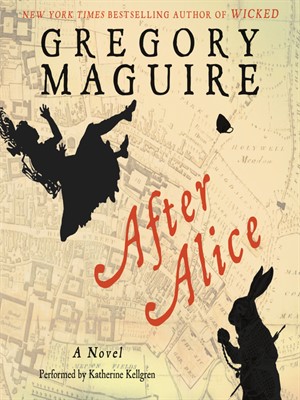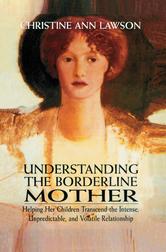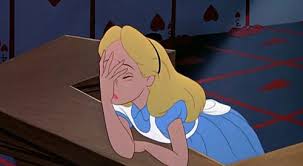So much wisdom encapsulated in an entertaining little story!
I haven’t had time for blogging this past week. It’s very difficult to blog when you have kids at home all day. However, several weeks ago I did a 2nd, more in depth review of An Old-Fashioned Girl. It’s practically an essay! Only god knows why I do this, why I write so much… Why in the world would I write an essay that no one is going to read?! Why?!
But it’s a good thing I did, I guess, because I don’t have anything else to post nor time to come up with anything else.
So, here you go- my 2nd review of An Old-Fashioned Girl, written several weeks ago.
As I was saying…
So much wisdom encapsulated in an entertaining little story!
I did a review of An Old-Fashioned Girl on June 30th, but in that one I focused more on a character comparison and analysis of Polly and Fanny, especially Polly.
In this review I will still have a few more things to say about Polly, but I will focus more on the novel itself and its themes.
I thought this story was going to be nothing more than Poor Girl and Rich Girl find that they can learn from each other. But it’s so much more than that. I was really surprised by how long this story was! It isn’t the longest book, in terms of pages, that I’ve ever read, but I think it seemed longer because it moves kind of slowly. It isn’t boring though, at least not to a reader like me who really enjoys 19th century novels.
The characters are entertaining and very distinct from one another, and a lot happens in the novel, but most of the events are minor and unfold slowly. There was, however, one plot twist at the end that I did not see coming. (Excellent!)
Another thing to note about this novel is that it is told in two parts. Part two begins 6 years after the end of part one, but in a way they seem like two totally separate books.
If you’ve read Little Women it’s hard not to make comparisons between it and An Old-Fashioned Girl. The length, scope, and pace of each story is very similar. The setting and characters and their interactions are also similar. Both books deal with regular day-to-day life events, as well as common milestones. Both stories are very tame, mild, and wholesome, and have several very clear opinions, themes, and moral lessons which are presented throughout the story . . .
The rich unfairly judge and snub the poor, love is more powerful than poverty, poverty can be a great teacher, self-improvement leads to a good life, hard work and purpose are essential for a good life, what you do is more important than what you wear, little girls shouldn’t grow up too quickly, one should strive to be as selfless as possible, doing for others is one of the keys to happiness, women should help lift each other up, the bond between women is very important and empowering . . . etc., etc., (I’ve also noticed that death and grief seem to be recurring themes in LMA’s stories.)
The brilliant part, and why LMA’s work is widely considered to be so enduring, is that these things are still very relevant today- as anyone who reviews either book will point out.
After reading An Old-Fashioned Girl I think that the theme and belief most important to Louisa was “work and purpose.” Time and time again this is directly stated throughout the novel, either by the narrator or the novel’s extra-perfect “little Polly.” I know this won’t go over well with some readers, but sometimes Polly was so perfect that it was down right annoying. She was like Mary freakin’ Poppins! “Practically Perfect In Every Way.”
However, Polly was likable, and even occasionally relatable- she has hopes and dreams, she cries and doubts. As I stated in my first review, Polly was an interesting character, but not an entirely realistic one. She represents the ideals that LMA holds so dear, she is the story’s protagonist and catalyst.
Much more realistic are the members of the Shaw family, especially Mr. Shaw, Tom, and Fanny, who are so very flawed that they all eventually find themselves very unhappy, but they each achieve great personal growth and happiness by novel’s end. Personal growth and self-improvement are also major themes in Little Women. Based on what I’ve read by LMA fans these themes are in almost all of her work.
Now, back to “work and purpose.” In the story, Polly, who is poor, is often much happier than her best friend, Fanny. Despite the money, conveniences, and luxuries she has, Fanny is often dissatisfied with her life. Polly encourages her to try and find something to do. She tries to persuade Fanny that if she had a purpose she would be happier. As the story moves on, Fanny comes to believe this more and more, and to her relief and satisfaction it eventually happens.
” . . . feeling that at last necessity had given her what she had long needed, something to do.”
“I shall groan and moan by and by, I dare say, but . . . I’m half glad it’s happened, for it takes me out of myself, and gives me something to do.”
Through An Old-Fashioned girl, Louisa May Alcott adamantly declares that people without something substantial and meaningful to do will not be happy. Idleness leads to “listlessness,” meanness, and possibly a depressed-like state. Work and purpose make for a good life, they keep a person happy and healthy.
“. . . Polly came to know a little sisterhood of busy, happy, independent, girls, who each had a purpose to execute, a talent to develop, an ambition to achieve, and brought to the work patience and perseverance, hope and courage. . . . All these helped Polly . . . for purpose and principle are the best teachers we can have, and the want of them makes half the women in America what they are, restless, aimless, frivolous, and sick.”
I agree wholeheartedly! I know from personal experience how true this is.
But you need love too, especially in childhood. True, LMA included the theme of love in this story- Polly’s family is very loving- but LMA did not directly state or emphasize the importance of love and affection to the degree that she did work and purpose.
I say that if love and affection are in place then, yes, bring on the work and purpose! These are absolutely necessary for human beings to be happy and healthy. This is true age-old wisdom going back thousands of years.
I have to say it again, so much wisdom encapsulated in an entertaining little story!
The following are some of my favorite quotes from An Old-Fashioned Girl:
” . . . she received, from an unexpected source, some of the real help which teaches young people how to bear these small crosses, by showing them the heavier ones they have escaped . . .”
” . . . that indescribable something which women are quick to see and feel in men who have been blessed with wise and good mothers.”
” . . . hearts are so “contrary” that they won’t be obedient to reason, will, or even gratitude.”
” . . . soon she had other sorrows beside her own to comfort, and such work does a body more good than floods of regretful tears, or hours of sentimental lamentations.”
“I can’t sell myself for an establishment.”
” . . . so she put her love away in a corner of her heart, and tried to forget it, hoping it would either die, or have a right to live.”
“Blessings, like curses, come home to roost.”
” He exaggerated his faults and follies into sins of the deepest dye.”
“He was either pathetically humble or tragically cross.”
“Why are bad boys like cake?”
“Because a good beating makes them better.”
“Everybody fell to eating cake, as if indigestion was one of the lost arts.”
“The gentlest girls when roused are more impressive than any shrew; for even turtle doves gallantly peck to defend their nests.”
“Occasionally a matrimonial epidemic appears…”
” . . . love and labor, two beautiful old fashions that began long ago, with the first pair in Eden.”
“I’ve had so many plans in my head lately, that sometimes it seems as if it would split . . .”
. . . which is exactly how I’ve been feeling about this blog.


